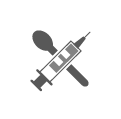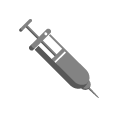Donor Qualification

Sexual relations
Sexually active persons can donate, if:
- - They have been in a monogamous relationship for more than three months;
- - They have had a new partner or several partners and have not had anal sex in the last three months*.
Sexual relations can contribute to the spread of blood-borne and sexually transmitted infections (STI). Despite the high performance of screening tests, there exists a window period during which, even if someone feels well and screening for HIV and Hepatitis B and C is negative, that person can have been recently infected and transmit these viruses to someone else who receives a blood product obtained from that donation.
The expression “sexual relations” refers to the following acts with or without a condom or other means of protection: vaginal penetration (contact of a penis with a vagina), oral sex (contact of the mouth or tongue with the vagina, penis or anus), and anal penetration (contact of the penis with the anus).
The expression “new partner” means someone you have not had sex with before, or someone you had sex with in the past and have had sex with again.
*A sexual assault (with or without a condom) is a risk factor for the transmission of STIs, whether or not there was anal sexual contact. Given the risks associated with the window period, sexual assault victims must wait three months after the event before donating.
High-risk sexual behaviour
If you have had anal sex with a new partner or several partners:
- - You can donate three months after the last anal sex.
If you have:
- - Received money or drugs in exchange for sex;
- - Had sex with a person who received money or drugs in exchange for sex;
- - Had sex with a person who injected drugs; or
- - Had sex with a person infected with HIV, HTLV-I/II or Hepatitis C;
- - You can donate 12 months after the last sexual relations occurred in the above situations.
Sexual assault
If you have been a victim of a sexual assault, you can donate three months after the event occurred.
Blood-borne and sexually transmitted infections (STI)
Ineligibility periods to donate due to blood-borne or sexually transmitted infections vary. If you have:
- - Chlamydia: you can donate seven days after the end of the antibiotic treatment.
- - Condyloma (human papillomavirus - HPV): you can donate.
- - Gonorrhea: you can donate 12 months after the end of the treatment.
- - Hepatitis B or C: you cannot donate (permanent restriction).
- - Cold sore: you can donate.
- - Genital herpes: you can donate after the lesions have completely healed.
- - HTLV-I/II: you cannot donate (permanent restriction).
- - Syphilis: you can donate after you have fully recovered, stopped antibiotic treatment and completed medical follow-up.
- - HIV: you cannot donate (permanent restriction).
Pre-exposure (PrEP) and post-exposure (PEP) prophylaxis
Pre-exposure (PrEP) prophylaxis and post-exposure (PEP) prophylaxis are medical treatments used to prevent HIV. Persons undergoing these treatments may have low levels of HIV in the blood that cannot be detected. This presents a risk of transmission through transfusion.
If you are undergoing this treatment, you can donate four months after the last tablets were taken or two years after the last injection.
Answers to frequently asked questions
Consult our Q&A section.
Have questions about your eligibility to donate?
Call our Donor Services at 1-800-847-2525.
- Child birth / Breast-feeding / Pregnancy

- Acupuncture / Electrolysis

- Age

- Allergies

- Cancer

- Cholesterol

- Dentist

- Diabetes

- Drugs

- Sore throat

- Body piercing / Tatoos

- Weight

- Medication

- Sexual relations

- Cold

- Vaccinations

- Creutzfeldt-Jakob Disease

- For more information, please contact our Donor Services at: 1 800 847-2525








